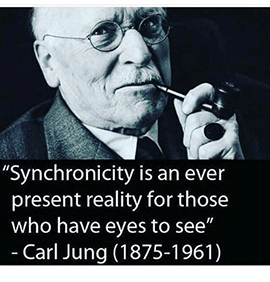Synchronicity - A New Approach, Explanation and Theory of Unus Mundis Cities
Researcher:
Tigran Haas, Associate Professor KTH, Director of the Center for the Future of Places (CFP)

Synchronicity - A New Approach, Explanation and Theory of Unus Mundis Cities (Society, Urbanism and Technology) is a research project that will conclude with a book of texts/essays on urbanism/city/society and technology. The approach and Assertion/Hypothesis is novel utilizing 'Synchronicity' as a new paradigm of cities based on the concept, first introduced by analytical psychologist Carl Jung, which holds that events are "meaningful coincidences of a higher order" if they occur with no causal relationship yet seem to be meaningfully related. It binds the latest thinking on cities through interdisciplinary and holistic approach using Grounded Theory as one of the leading explorative and qualitative strategies of research inquiry. As the late William J Mitchell of MIT observed, 'that it is impossible to predict the futures of cities, and certainly unwise to try because there are too many uncertainties and random contingencies and there is an indeterminacy effect'.

Synchronicity provides a new theoretical and practical understanding of urbanism and cities. It does so by reexamining the architecture, urban planning and urban design disciplines relationship to urban space and urban populations and by reframing the paradigms and their principles and approaches in a way that by incorporating the city's many elements, signs, patterns, symbols and images as well as assemblages - via meaningful coincidences and deeper order, imagined for more than a single element by a single approach, then urbanism of cities becomes something else much more powerful, elemental, systemic, wide-ranging; this engages the imagination, provides a concrete basis for debate about what might be desirable and achievable for our cities.
The research project, through Grounded Theory and the idea of Synchronicity will be a study of places, symbols, patterns, environments, occurrences, orders, codes, serendipities, and systemic connections in cities. Cities that will be observed are Boston, Zurich, Vienna, Stockholm, Dubrovnik, London, Berlin, San Francisco, Prague, and Geneva. The final output book - Synchronicity - will examine the patterns and codes as well as emerging system of spaces, flows, and practices in a series of short essays, snapshots of the condition of plural western world cities in the twenty-first century, but also a new approach for understanding a higher order and a hidden dimension of urbanism - one that incorporates technology, built environment, transportation, energy, telecommunications, and social, economic, cultural, political and structural flows of the city.
